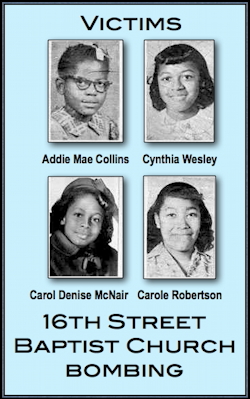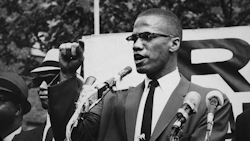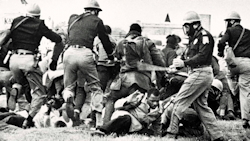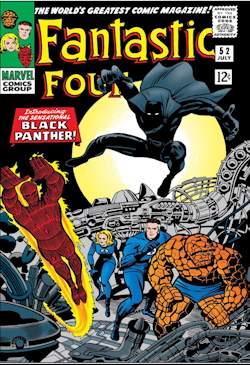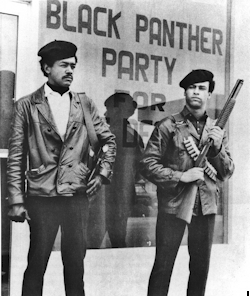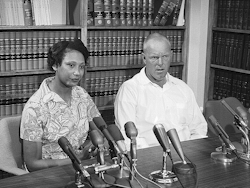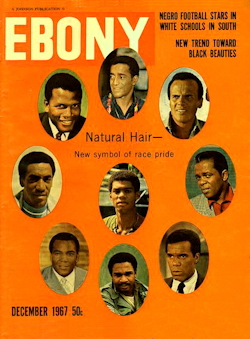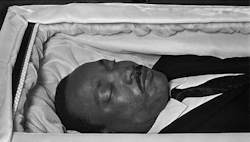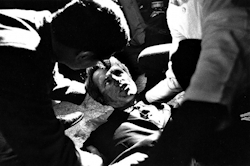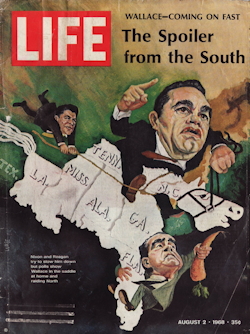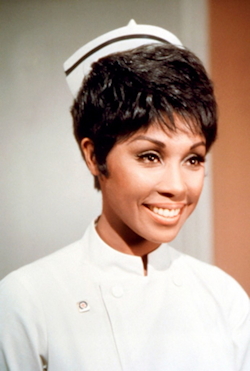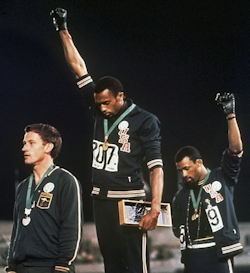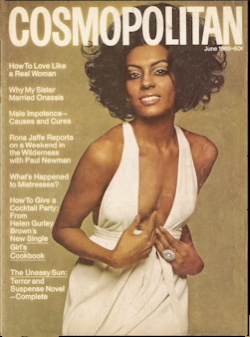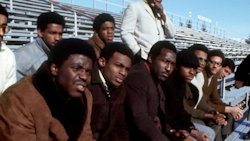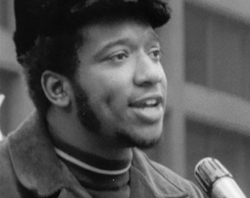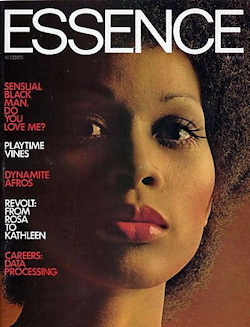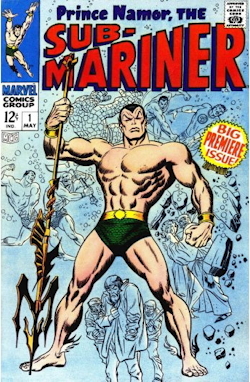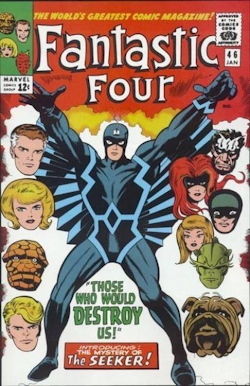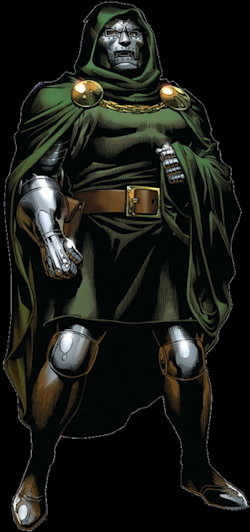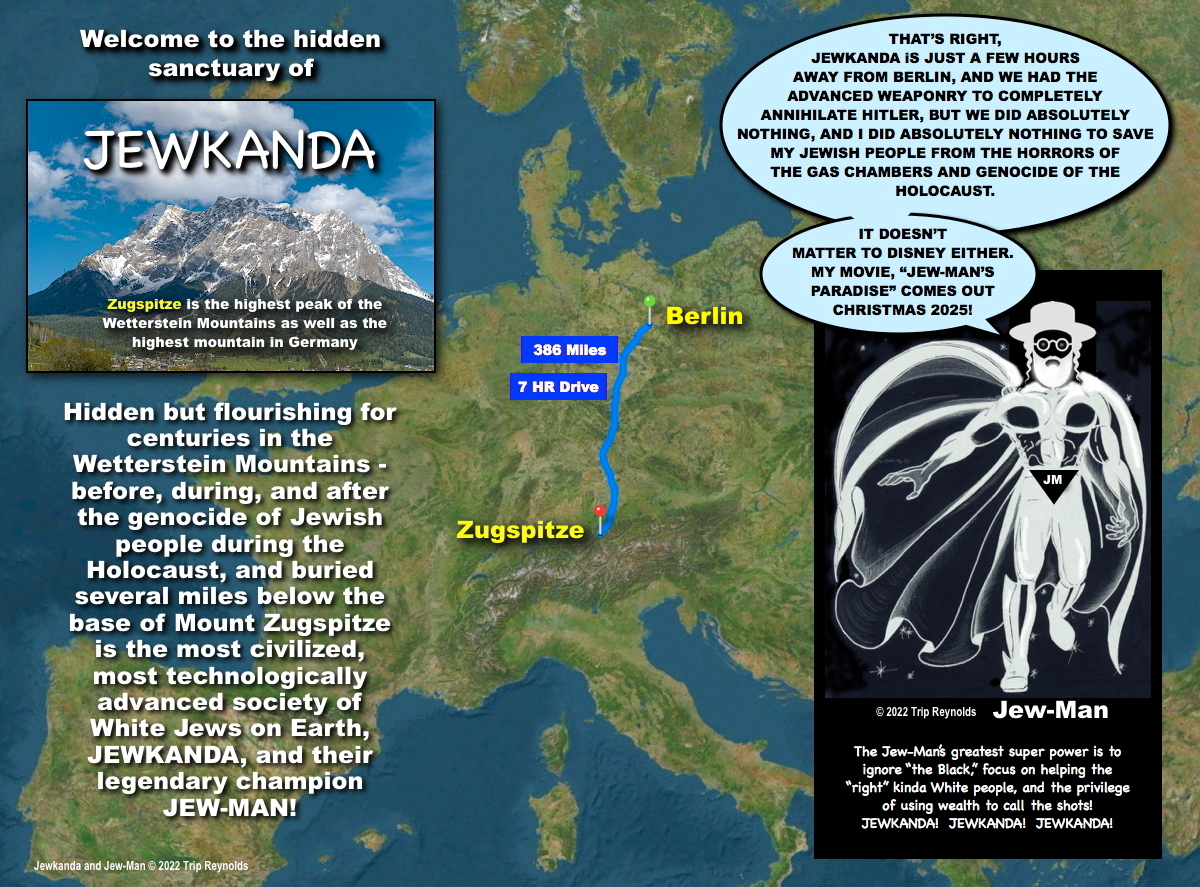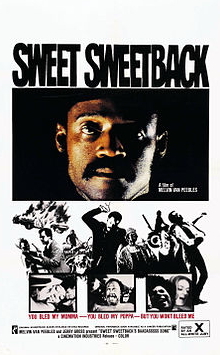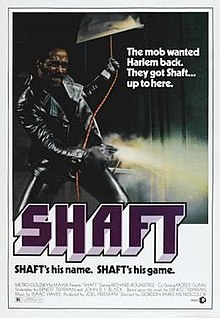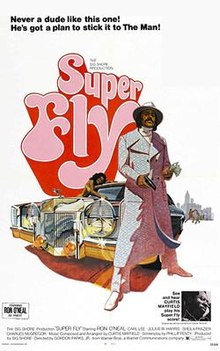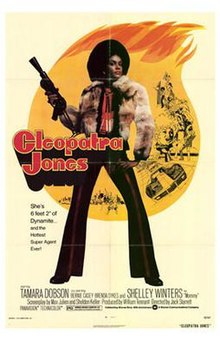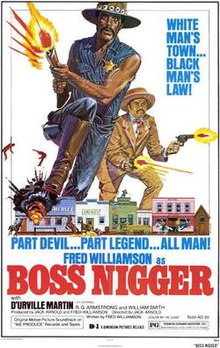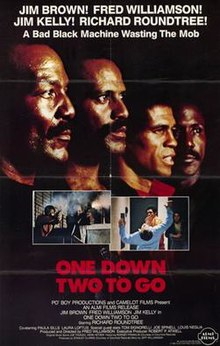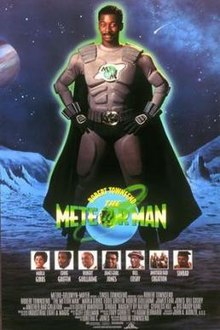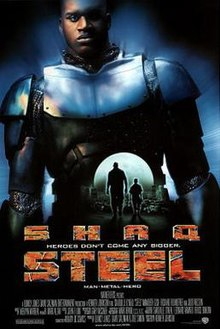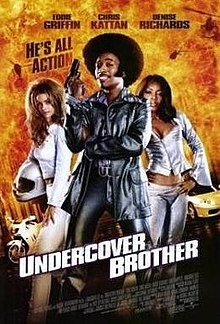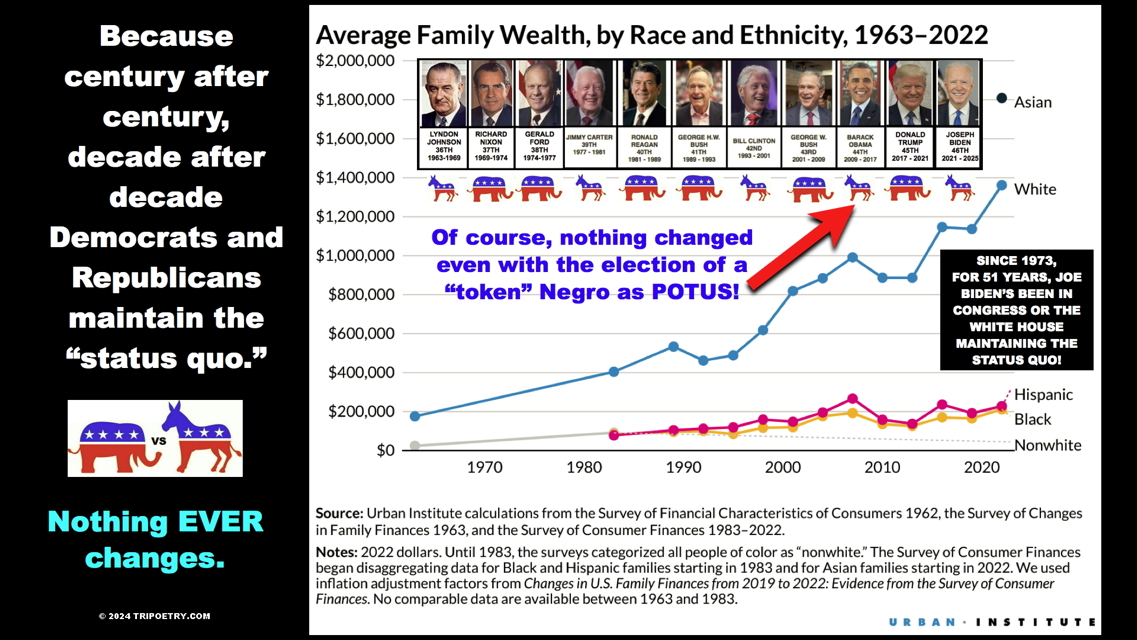|
|||||||||||||||||||||||||||||||||||||||||||||||||||||||||||||||||||||||||||||||||||||||||||||||||||||||||||||||||||||||||||||||||||||||||||||||||||||||||||||||||||||||||||||||||||||||||||||||||||||||||||||||||||||||||||||||||||||||||||||||||||||||||||||||||||||
Film Review © 2018 by Trip Reynolds Science Fiction, Comic Book Superhero Drama Directed by Ryan Coogler. Screenplay by Ryan Coogler and Joe Robert Cole. Based on the Marvel Comics by Stan Lee and Jack Kirby. Executive produced by Victoria Alonso, Jeffrey Chernov, Louis D'Esposito, Stan Lee, and Nate Moore. Produced by Kevin Feige (P.G.A.). Co-produced by David J. Grant. Starring:Chadwick Boseman as T'Challa / Black Panther; Michael B. Jordan as Erik Killmonger; Lupita Nyong'o as Nakia; Danai; Danai Gurira as Okoye; Martin Freeman as Everett K. Ross; Daniel Kaluuya as W'Kabi Letitia; Letitia Wright as Shuri; Winston Duke as M'Baku; Sterling K. Brown as N'Jobu; Angela Bassett as Ramonda; Forest Whitaker as Zuri; Andy Serkis as Ulysses Klaue; Florence Kasumba as Ayo; John Kani as T'Chaka; David S. Lee as Limbani, and a host of others. |
|||||||||||||||||||||||||||||||||||||||||||||||||||||||||||||||||||||||||||||||||||||||||||||||||||||||||||||||||||||||||||||||||||||||||||||||||||||||||||||||||||||||||||||||||||||||||||||||||||||||||||||||||||||||||||||||||||||||||||||||||||||||||||||||||||||
The story? The newly crowned king (actor Chadwick Boseman), of Wakanda, the world's most secretive, highly evolved and scientifically advanced society which is composed entirely of Black people, is challenged for his thrown by his expatriated first-cousin (actor Michael B. Jordan). As the story evolved, we see: highly evolved Wakandan technology in direct contrast to wide shots of open-air markets that mirror various third-world markets in stereotypical poor African cites; we see pseudo-traditional African clothing; we see a stereotypical White (British) man, actor Andy Serkis, as the opportunistic villian; we see a stereotypical White man as a controlling CIA agent (actor Martin Freeman); and we see blatant inconsistencies in the script that establish the film more as a fantasy than a realistic projection of a world where Black people truly are highly evolved and scientifically advanced. Gender issues? In Wakanda society, the aristocracy is handed down from father to son or through ritual battle. At one point in the film we see a wide shot showing all of the previous rulers of Wakanda - they were all male. However, we're to believe Amazon-esque Black women are the best warriors and equally adept as scientists and technical gurus, but despite their physical and intellectual prowess Black women are still "unable" to rule Wakanda. Why is that? And, why doesn't the film address this caste system? Yes, this film proudly showcases smart, attractive, and confident Black women, and contrary to the overwhelming majority of Hollywood films, there is not one big-titty, big butt, morbidly overweight or obese Aunt Jemima-or-Oprah Winfrey-looking Black woman in this film, and that's a welcome change. But, again, the social hierarchy of Black males versus Black females appears as a contradiction to egalitarian principles, and an "enlightened" society should be above such . . . gender-based pettiness, right? Right! Warrior? We're also supposed to believe the Black Panther is the greatest warrior of Wakanda - with or without his highly advanced suit-of-technology, and with or without the vibranium that functions as the source of his enhanced physical prowess. Unfortunately, he gets his butt kicked much too often to be considered the greatest warrior "of all time." Given that African cultures preceeded all other cultures in the development of martial arts, weaponry, etc., curiously missing from this film is any reference to the tactical superiority that Wakandans should possess over all other cultures on earth. Technology? Sadly, given its status as a highly evolved and scientifically advanced society most of the Wakandan technology presented in this film is pretty pedestrian, not particularly noteworthy. Even worse, the lack of Wakandan security to protect its "advanced technology" from outsiders is more than just a major fault of the script, it demonstrats a failure of the film to acknowledge and to raise Wakandan technology presented in this film to a much higher standard. Why? The Marvel Universe is filled with extremely intelligent people, people with guru-level genius who would not be challenged by Wakandan technology presented in this film, intellectuals such: as Tony Stark (Iron Man), Bruce Banner (The Incredible Hulk), Reed Richards (Mr. Fantastic of the Fantastic Four), Hank Pym (Ant-Man / Goliath / Yellowjacket / Giant-Man), and especially Victor Von Doom (Doctor Doom). The film really dropped the ball in this regard. Blackness? Most importantly, the "big elephant in the room" or central "problem" with this film, as with the comic book origin, is we're supposed to believe the world's most highly evolved and scientifically advanced society, a society composed entirely of Black people, did absolutely nothing but to watch or ignore as their Black peers endured 250 years of slavery, 90 years of Jim Crow, 60 years of separate but equal, 35+ years of state-sanctioned redlining! Not until May of 1865 were slaves in Texas told of President Lincoln's "Emancipation Proclamation of September 22, 1862" that freed them nearly three years earlier. But given their knowledge of world affairs, what excuse did Wakandans have to ignore the suffering of their peers through 250 years of slavery, 90 years of Jim Crow, 60 years of separate but equal, 35+ years of state-sanctioned redlining? Are Black people really that stupid, or brainwashed, or naive, or selfish? Well, are they??? How does an enlightened Wakandan society ignore a world-wide political imperative to kill, kill, kill and continue to kill or enslave or rape or discriminate or oppress Black people and other people of color - and even White people too? Spiritual? The Wakandan people appear to be very philosophical but not religious, because the king literally engulfs himself in vibranium to experience ethereal, or otherworldly visions and interaction with his predecessors. Therefore, ignoring human atrocities is essentially a cult-like practice for the Wakandan people, and the enslavement of Black people is an acceptable business-as-usual practice. In this regard, Wakandan aristocracy are just like those "other" political leaders who profess to be Christians, or Jewish, Muslim, etc., but they do absolutely nothing to protect human rights, or they take a piecemeal approach to save a soul here and there, because they have desensitized themselves to ignore the moral imperative of holy scripture, "thou shalt not kill." Equally important, keep in mind, this film is a White man's idea of what it would be like for a Black man to lead the world's most highly evolved and scientifically advanced society, which again is a major problem for this film. Yes, the film was directed by a Black man, Ryan Coogler, and written by two Black men, Joe Robert Cole and Ryan Coogler. But the "Black Panther" was created in 1966 by two White men, the legendary Marvel Comics writer Stan Lee and equally legendary Marvel Comics artist Jack Kirby. The problem is not with Lee and Kirby, because Marvel Comics has always been a White owned and operated company, and accordingly, as White people, they make the rules, they make all exceptions to the rules, and given their control of all aspects of media, business and society White people have always defined the "images" of Black people they want all people throughout the world to see and digest. Arguably, Lee and Kirby created the Black Panther comic book to intentional exploit and profit from the civil rights movement, or whatever, but the creation of "The Black Panther" in 1966 intentionally omitted the following social and political context (CLICK IMAGES BELOW TO ENLARGE):
Why is the aforementioned important? Simply put, it makes as much sense for the original 1966 "Black Panther" comic book and this 2018 film to ignore the reality of "Being Black" as it would have been for "Born on the Fourth of July (1989)" to ignore the plight of wounded Vietnam war veterans, or for "Schindler's List (1993)" to ignore the Holocaust. It matters. The Black life experience matters. "The Black Panther" intentionally skipped over the inherent social and political context that defines and confines Blackness throughout the world. Again, it matters, and the Black Panther is not relevant to Black people because he failed to address his "Blackness." Erik Killmonger's father left Wakanda to fight for oppressed Black people in the United States, but T'Challa's father killed him. In summary, the "Black Panther" is an Uncle Tom. An "Uncle Tom" is a Black person who is knowingly and intentionally subservient to, gives preference to, worships, or acknowledges White people as his (or her) superior. This film gives us an Obama-esque pacifist leader for the world's most highly evolved and scientifically advanced society who, like his predecessors did absolutely nothing but watch or ignore as their Black peers endured 250 years of slavery, 90 years of Jim Crow, 60 years of separate but equal, 35+ years of state-sanctioned redlining! Instead, the film should have presented a Malcolm-X-esque leader with the intelligence, courage, and commitment to create and effectively manage an elite nation state. This would have made the film much more thought-provoking, and made the film's climax far more worthy than yet another derivative rip-off of the biblical Cain vs. Abel or the classic Roman folklore of Romulus vs. Remus. Unfortunately, absent marytrdom "Hollywood" has absolutely no interest to showcase a Black man who's politically successful, or to showcase a Black man with the mindset to unite Africa and all African people of color. If guided by the nation of Wakanda, imagine the impact and threat of a United States of Africa to Western (The United States of America) and European (The European Union) imperialism. To showcase a Black man with the gravitas to unite Black people; or to showcase why a Black man has a legitmate right to be an ABM, an Angry Black Man typically results in the death of that Black man (Meager Evers, Malcolm X, Martin Luther King, etc.). Plus, as usual, for films that feature a Black man in a major U.S. or international release, the central character is again "blacastrated" as a celibate, monk-like character with no on-screen intimacy with any female character; simply put, "Black man" + "castrate" = "blacastrate." The only other on-screen "relationship option" of intimacy for a Black man in a major U.S. or international release is to appear physically or mentally abusive to women, a pimp, adulterer/philanderer, or as a homosexual. As represented in nearly all major "Hollywood" films by Denzel Washington, Samual L. Jackson, Eddie Murphy, etc., an on-screen marrige to a Black woman is rare. This is an action film, so Chadwick Boseman's "Black Panther" must keeps his penis in his pants, but White male stars in actions films commonly kiss, touch, caress, show affection to a woman, and make love to a woman. This film supposedly champions the idea of a strong Black woman, but as usual, in Hollywood cinema a strong Black women cannot be with a strong Black man. Again, the Black life experience matters. In all fairness to Marvel Comics, the Black Panther is NOT the only ruler of the world's most highly evolved and scientifically advanced society. That's right, other people in the Marvel Universe, even White people, intentionally excluded themselves from the whole of humanity, such as:
But unlike the aforementioned fictional comic book characters of Sub-Mariner, Black Bolt, and Dr. Doom, the Black Panther is based on the reality of human oppression against people who actually do exist and who continue to be oppressed - Black people. As acted by Chadwick Boseman, T'Challa lacked the intellectual prowess and mental acuity to effectively lead Wakandan society, and he lacked the tactical facility to lead the Wakandan military as Black Panther. As Boseman did previously in his uninspiring role as legendary entertainer James Brown in "Get On Up (2014)," and as Jackie Robinson in "42 (2013)," at best Boseman can only do pale immitations, because he lacks the acting proficiency to go beyond being a mimic. Some media outlets are hyping the "Black Panther" as the greatest "Black" movie ever made, which is ridiculous. Don't believe the hype. What is true is that the "Black Panther" is the most marketed, the most publicized, the most heavily promoted "Black" movie of all time! When calculating a marketing budget, the rule of thumb is to spend 50 percent of the rest of the production costs (pre-production, filming and post-production). So if a movie costs $100 million to make, you'll need an additional $50 million to sell it. To recap the budgeted $200 million dollars spent to produce the "Black Panther," and consistent with the promotion of other films in the Marvel Cinematic Universe, Disney, which owns Marvel Studios, mounted a prolonged and very robust social media, print, and broadcast media campaign, and no other "Black" film in history ever received such promotion! Why would Disney spend so much money to promote this film. Nearly 50% to 60% of total film revenue comes for foreign markets, and featuring Black people in leading roles for "major" theatrically released films comes at great financial risk for Hollywood film studios. For example, George Lucas (creator of the "Star Wars" film franchise) spent 23 years trying to get "Hollywood" to finance and produce "Red Tails," finally released in 2012, a World War II movie about the legendary Tuskegee Airmen, but unfortunately, it featured an all-Black cast. "Hollywood" refused to finance the film, so Lucas used his own money ($58 million) to finance the film. Given the lack of support from the "Hollywood" industrial complex (writing, production, distribution, exhibition, and promotion) "Red Tails" lost money. Keep in mind, the rest of the world is keenly aware the United States openly engaged in genocide, slavery, oppression, discrimination, and the continuing skewed incarceration of Black people; plus, propaganda from the U.S. continues to fuel the flame that Black people have no value in the U.S. or anywhere else in the world. Black people are primarily marketed as clowns, buffoons, or minstrels, and that's how "Hollywood" markets "those people" to the world. What, you don't agree? Take a look at the following list of the largest grossing films with Black people in leading roles with a predominately Black cast.
Now, you might think (erroneously) that surely Denzel Washington and/or Samuel L. Jackson have starred in a "Black film" that's made a bunch of money, right? Wrong. Washington's highest grossing starring role in a theatrically released film, that kinda had a predominately Black cast, is "American Gangster (2007)," which generated $130,164,645. Keep in mind, to attract "White audiences," Washington's co-star in "American Gangster" was Academy Award® winning White actor, Russell Crowe. So, count "American Gangster" as a buddy film. Jackson's highest grossing starring role in a theatrically released film, with a predominately Black cast, is . . . wait for it . . . wait for it . . . "Coming to America." Yep, that's right. Given the list above, it makes since for 6'5" producer/director/actor Tyler Perry to dress-up as a woman, after all, making the Black male image effeminate has worked pretty well for 5'8" Martin Lawrence and 5'9" Eddie Murphy. Given the aforementioned, "Black" films are not produced and released for major domestic and international distribution unless:
So, the "Black Panther" is unique because it's being treated (produced, marketed, and distributed) like any other major film in the Marvel Cinematic Universe, and frankly, that's the only significant accomplishment this film truly merits. And the marketing has paid off, because as of February 19, 2018 the "Black Panther" generated $235,000,000 domestically (58.2%) and $169,000,000 internationally (41.8%) for a worldwide total of $404,000,000 for its opening weekend, and the fifth largest opening of all-time! As with the script, all acting performances were color-by-number, with perfunctory special effects, and predictable pseudo-epic battles. In addition to a script re-write, film would have greatly benefited by casting Wesley Snipes as T'Challa / Black Panther; and although Michael B. Jordan's performance as Killmonger was better than his performance as Adonis "Donnie" Johnson Creed in "Creed (2015)," Michael Jai White would have been much better as Erik Killmonger (and as "Creed"), because Snipes and White are actually skilled martial artists, and as "seasoned" actors they would have brought much more depth to their characters making them much more believeable. Plus, the pairing of Snipes versus White would have much greater marque value than Boseman versus Jordan. Film direction by Ryan Coogler was also perfunctory. Film editing by Debbie Berman and Michael P. Shawver is sharp, but pace was not brisk; film should have been trimmed from 134 minutes to 120 minutes or less. Oh, one more thing. There's been considerable buzz about "Black Panther" being the first or the most influential "Black" film to establish and promote "positive role models" for Black people. That's a bunch of crap, and clearly demonstrates the blatant ignorance of those who promote such idiocy, or even worse, the intentional disregard for the extremely rare occassion of Black actors and actresses appearing in "leading roles," as created and produced by Black writers, White writers, and Black and White directors who actually lead the way by showcasing positive Black images in films with predominately Black casts. For many, if not for most Black people, these Black men and women who did not cower to "the man" were heroes! Oh, how soon we forget:
Recommendation: As with the comic book original, this film is a fantasy, and although worthy to be seen as a component within the fictional Marvel Cinematic Universe, "The Black Panther" should not and must not be confused with or associated with Black culture, Black history, or "Blackness." Yes, this film put a lot of Black people to work, but so does the U.S. federal government, and as represented below, the overall social and economic status of Black people has not changed one damn bit. CLICK THE ABOVE IMAGE TO ENLARGE |
|||||||||||||||||||||||||||||||||||||||||||||||||||||||||||||||||||||||||||||||||||||||||||||||||||||||||||||||||||||||||||||||||||||||||||||||||||||||||||||||||||||||||||||||||||||||||||||||||||||||||||||||||||||||||||||||||||||||||||||||||||||||||||||||||||||
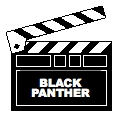 BLACK PANTHER
BLACK PANTHER 